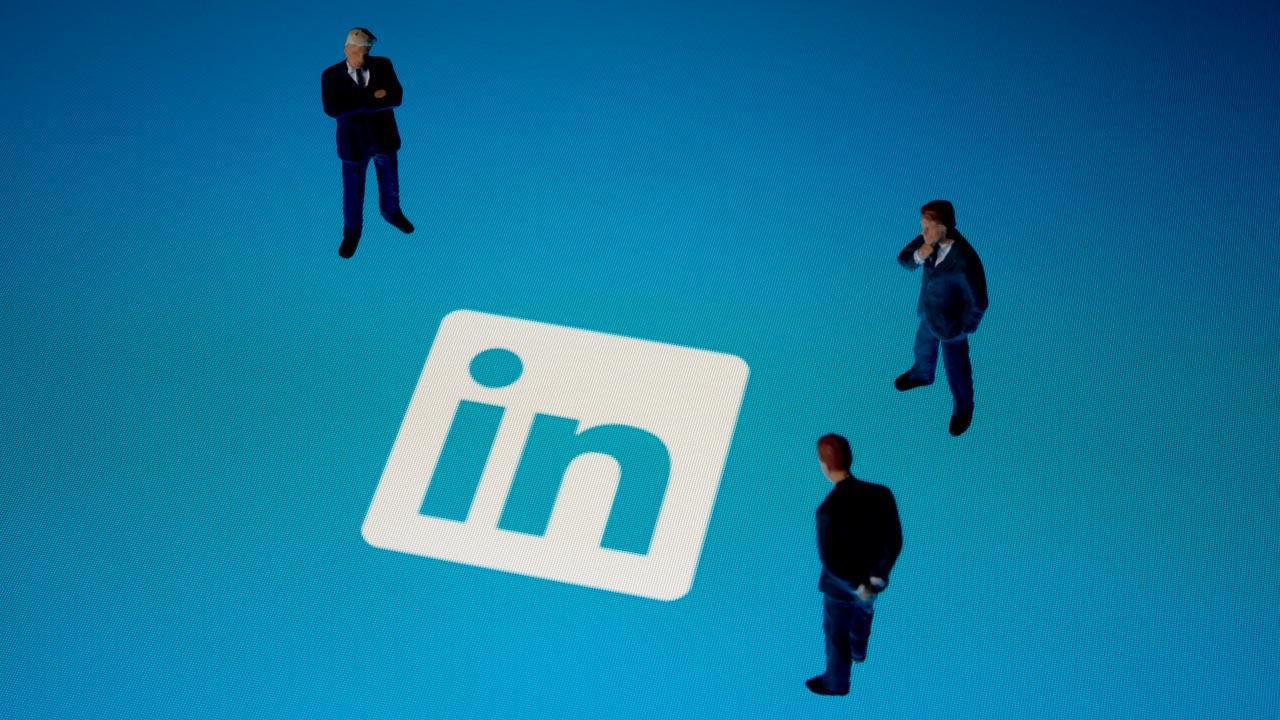If you’re looking for frivolity, flights of the imagination, or just a way to waste time, LinkedIn is always a good bet

I sometimes think of LinkedIn as a microcosm of what it means to be Indian today: this idea, trickling down from the top, that we don’t need to be qualified to have an opinion if we say something loud enough and often enough. Representation pic
 I deleted all data from my LinkedIn account almost a decade ago but continue to spend an inordinate amount of time hating that platform because of how ubiquitous it continues to be. It sometimes feels as if social media companies will never let us get on with our lives, no matter how hard we try to move away from them. I still get newsletters with links to LinkedIn posts, job applications that require me to log in to find out more about an opportunity, and notifications of requests from people I have never heard of, even though my profile is no longer active.
I deleted all data from my LinkedIn account almost a decade ago but continue to spend an inordinate amount of time hating that platform because of how ubiquitous it continues to be. It sometimes feels as if social media companies will never let us get on with our lives, no matter how hard we try to move away from them. I still get newsletters with links to LinkedIn posts, job applications that require me to log in to find out more about an opportunity, and notifications of requests from people I have never heard of, even though my profile is no longer active.
What I can’t deny is how it is still one of the best places for escapism at work if you’re stuck in a boring meeting and can’t find a more office-approved site to visit. You can simply call it research, and your colleagues will believe you because of how every post masquerades as some kind of revelation. ‘Look at what I learned as a corporate clown today’ they all say, and the likes pile up like clockwork.
People on LinkedIn all seem to believe they have something valuable to share. This is true of columnists such as myself too, of course, but in my defence, that is what columnists are explicitly tasked with doing. I air an opinion because that is the nature of the job. The good people on LinkedIn, however, feel the need to talk about things no one has asked them to. They post long essays about productivity and work culture every few hours, as if the people in their individual networks are all waiting with bated breath for their next collection of pithy comments. I’m told a lot of them now use it as a surrogate dating app too, which isn’t surprising given how sexually repressed this country is. That creepy stuff presumably happens behind the scenes though, via private messages and away from the prying eyes of everyone else posting updates about a change of designation or some other inane milestone at work.
I once worked with a salesperson who, at the age of 50-something, decided to get a PhD in business administration from an American institution no one had ever heard of. He did a course in counselling soon after, and promptly changed his LinkedIn profile to include the prefix Dr. Within a few weeks, his posts began to focus on mental health while the Dr. prefix convinced everyone in his circle that he was now a doctor qualified to offer support and advice on mental health and psychological matters. A year later, he opened a counselling centre, and now charges his ‘patients’ R2,500 a session to talk about anxiety, stress and ‘a general feeling of being stuck in a rut.’
The episode ought to have shocked me, but didn’t, because LinkedIn personifies the enthusiasm with which we now root for con artists. ‘Fake it until you make it,’ we tell ourselves, and everyone with a login and password then proceeds to do just that with alacrity because there are no gatekeepers. You can do a four-week online course on an introduction to Artificial Intelligence, add it to your ‘list of certifications’, and promptly begin referring to yourself as a ‘marketing expert trained in upcoming AI technologies.’ And, because HR departments are routinely staffed by the least intelligent folk among us, chances are you will find yourself a job with ‘artificial intelligence’ in the title within months, just because it happens to be the buzzword of the season.
It is no wonder that one of the biggest complaints from companies abroad that receive resumes from Indian applicants is how so much of what they get is completely fabricated. LinkedIn has helped us accept the idea that lying is perfectly okay. I sometimes think of the platform as a microcosm of what it means to be Indian today: this idea, trickling down from the top, that we don’t need to be qualified to have an opinion if we say something loud enough and often enough. It is a habit so deeply entrenched in all aspects of our political and economic systems that we have lost our ability to separate
fiction from fact.
It is tempting to throw all caution to the wind and jump in. I just might create a new account, put up a photograph of myself standing beside an aeroplane, list the number of flights I have taken in my lifetime, and start referring to myself as a pilot.
When he isn’t ranting about all things Mumbai, Lindsay Pereira can be almost sweet. He tweets @lindsaypereira
Send your feedback to mailbag@mid-day.com
The views expressed in this column are the individual’s and don’t represent those of the paper
 Subscribe today by clicking the link and stay updated with the latest news!" Click here!
Subscribe today by clicking the link and stay updated with the latest news!" Click here!








